Vegetables
Vegetables are an essential part of a healthy diet and are classified as edible plants or parts of plants that are rich in nutrients. They are a major source of vitamins, minerals, fiber, and antioxidants that are important for maintaining good health.
Types of Vegetables
Vegetables can be categorized into different types based on their edible parts:
- Root Vegetables: Examples include carrots, beets, radishes, and potatoes.
- Leafy Greens: This category includes spinach, kale, lettuce, and collard greens.
- Cruciferous Vegetables: Broccoli, cauliflower, Brussels sprouts, and cabbage fall into this group.
- Stem Vegetables: Asparagus and celery are examples of stem vegetables.
- Edible Plant Fruits: Vegetables like tomatoes, cucumbers, and bell peppers are botanically fruits but are commonly grouped with vegetables.
- Legumes: Peas, beans, and lentils are part of this category.
Nutritional Benefits
Vegetables provide a wide range of nutrients that are essential for the body:
- Vitamins: Vegetables are rich in vitamins A, C, and K, as well as various B vitamins such as folate and riboflavin.
- Minerals: They are a good source of minerals like potassium, magnesium, and iron.
- Fiber: Vegetables are an important source of dietary fiber, which is crucial for digestive health.
- Antioxidants: Many vegetables contain antioxidants such as beta-carotene, lycopene, and flavonoids, which help protect the body from oxidative stress.
Study Guide
When studying the topic of vegetables, it's important to focus on the following key points:
- Understand the different types of vegetables and their edible parts.
- Learn about the nutritional benefits of vegetables, including the specific vitamins, minerals, and other nutrients they provide.
- Explore the health benefits associated with consuming a variety of vegetables, including their role in preventing certain diseases.
- Examine the recommended daily intake of vegetables and how they can be incorporated into a balanced diet.
- Research different cooking methods for vegetables and how they can impact their nutritional content.
By mastering these concepts, you'll develop a comprehensive understanding of the importance of vegetables in promoting overall health and well-being.
.◂Biology Worksheets and Study Guides High School. Genetics and heredity I
Worksheet/Answer key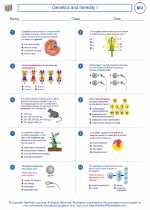 Genetics and heredity I
Genetics and heredity I  Worksheet/Answer key
Worksheet/Answer key Genetics and heredity I
Genetics and heredity I  Worksheet/Answer key
Worksheet/Answer key Genetics and heredity I
Genetics and heredity I  Worksheet/Answer key
Worksheet/Answer key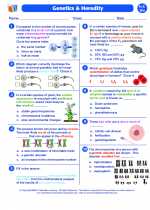 Genetics and heredity I
Genetics and heredity I  Vocabulary/Answer key
Vocabulary/Answer key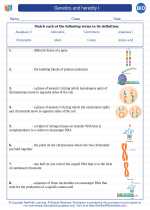 Genetics and heredity I
Genetics and heredity I  Vocabulary/Answer key
Vocabulary/Answer key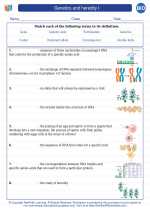 Genetics and heredity I
Genetics and heredity I  Vocabulary/Answer key
Vocabulary/Answer key Genetics and heredity I
Genetics and heredity I  Vocabulary/Answer key
Vocabulary/Answer key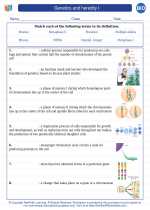 Genetics and heredity I
Genetics and heredity I  Vocabulary/Answer key
Vocabulary/Answer key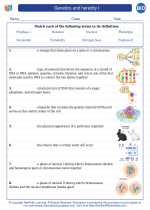 Genetics and heredity I
Genetics and heredity I  Vocabulary/Answer key
Vocabulary/Answer key Genetics and heredity I
Genetics and heredity I  Vocabulary/Answer key
Vocabulary/Answer key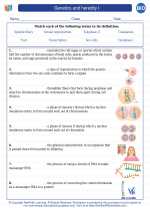 Genetics and heredity I
Genetics and heredity I 

 Worksheet/Answer key
Worksheet/Answer key
 Worksheet/Answer key
Worksheet/Answer key
 Worksheet/Answer key
Worksheet/Answer key
 Vocabulary/Answer key
Vocabulary/Answer key
 Vocabulary/Answer key
Vocabulary/Answer key
 Vocabulary/Answer key
Vocabulary/Answer key
 Vocabulary/Answer key
Vocabulary/Answer key
 Vocabulary/Answer key
Vocabulary/Answer key
 Vocabulary/Answer key
Vocabulary/Answer key
 Vocabulary/Answer key
Vocabulary/Answer key

The resources above cover the following skills:
LIFE SCIENCE (NGSS)
Heredity: Inheritance and Variation of Traits
Students who demonstrate understanding can:
Ask questions to clarify relationships about the role of DNA and chromosomes in coding the instructions for characteristic traits passed from parents to offspring.
Apply concepts of statistics and probability to explain the variation and distribution of expressed traits in a population.